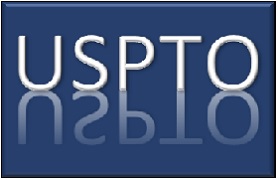Industries
CARES Act: USPTO Allows Trademark and Patent Extensions
___________________________
5/1/2020 Update: The USPTO announced that extensions of time for certain trademark and patent filings and fees submitted late due to the COVID-19 outbreak will now be available through June 1, 2020. This is in addition to the extension previously announced by the USPTO on March 31, 2020.
___________________________
 Currently, the United States Patent and Trademark Office (USPTO) is closed to the public but is open for the filing of documents and fees. However, it is allowing extensions of time for certain patent and trademark filings and for the payment of certain fees pursuant to an exercise of temporary authority provided via the Coronavirus Aid, Relief, and Economic Security Act (CARES Act).
Currently, the United States Patent and Trademark Office (USPTO) is closed to the public but is open for the filing of documents and fees. However, it is allowing extensions of time for certain patent and trademark filings and for the payment of certain fees pursuant to an exercise of temporary authority provided via the Coronavirus Aid, Relief, and Economic Security Act (CARES Act).
If an eligible filing was or is due between March 27, 2020 and April 30, 2020, the filing will be considered timely if made within 30 days of the original due date, provided the filing is accompanied by a statement indicating the delay in filing was due to the COVID-19 outbreak.
Standard for Determining Delay
The standard for determining whether the delay is due to the COVID-19 outbreak is whether the outbreak materially interfered with the affected person’s filing of a document or fee. The affected person may be the practitioner, applicant, registrant, inventor or other person associated with the filing or fee, who was personally affected by the COVID-19 pandemic, via circumstances including office closures, cash flow interruptions, lack of access to files or other materials, travel delays, personal or family illness, or similar circumstances, such that the COVID-19 outbreak materially interfered with timely filing or payment of fees.
Trademark Filings
Trademark filings that qualify for COVID-19 related extension include Office action responses, statements of use, renewals, notices of appeal and more. The effects of the COVID-19 outbreak also are considered good cause to support additional requests for extensions of time to oppose filed in the Trademark Trial and Appeal Board beyond the usual 30-day extension. The full list of eligible trademark filings that qualify for a COVID-19 related extension can be found on the USPTO’s web site.
Patent Filings
Patent filings that qualify for COVID-19 related extensions include Office action response filed during pre-examination processing by a small or micro entity; reply to an Office action or notice issued during examination or publication processing; issue fees; notice of appeal; appeal brief; reply brief; appeal forwarding fee; request for an oral hearing before the Patent Trial and Appeal Board (PTAB); response to substitute examiner’s answer; amendment when reopening prosecution in response to, or request for rehearing of, a PTAB decision with a new ground of rejection; maintenance fee filed by a small or micro entity; and requests for rehearing of a PTAB decision. The full list of eligible patent filings that qualify for a COVID-19 related extension can be found on the USPTO’s web site.
It is unknown how the USPTO, TTAB and PTAB will evaluate statements alleging the COVID-19 outbreak materially interfered with the ability to timely file documents and pay fees, including whether and to what extent supporting evidence will be required. Considering, trademark and patent owners should aim to continue to make timely filings and fee payments rather than relying on an extension pursuant to the CARES Act.
Should you have any questions regarding USPTO filing extensions, please contact Ms. Johnson or Mr. Charpie.
___________________
Disclaimers:
At the date of publication the above information was correct. It is quite possible the information above has changed as COVID-19 is a rapidly evolving situation.
The article in this publication has been prepared by Eastman & Smith Ltd. for informational purposes only and should not be considered legal advice. This information is not intended to create, and receipt of it does not constitute, an attorney/client relationship.
